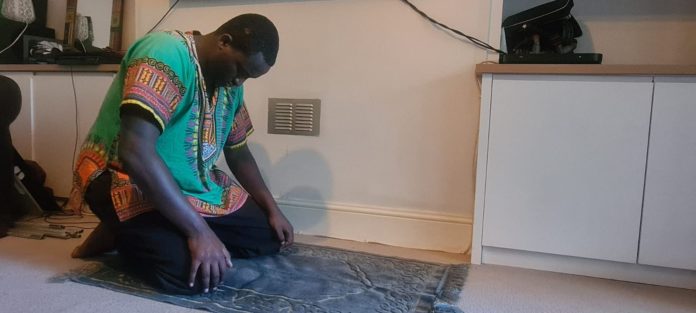A new report has revealed shocking levels of alienation experienced by black Muslims in the UK within the Muslim community itself.
The Black Muslim Forum said it produced the report to improve the condition of black people and to further unite the British Muslim Ummah.
The report is based on questions posed to 100 black Muslims between June and December 2019
- 53.95% of participants felt that they generally did not belong to their local mosque
- 84% felt that they did not belong to their university’s Islamic society
- 63.41% felt that they did not belong to the UK Muslim community
- 48.98% of participants said they had faced anti-black discrimination or colourism within a UK mosque or religious setting
- 36.36% of participants said they had faced anti-black discrimination or colourism within a family setting in the UK
- 79% of participants said they had faced anti-black discrimination or colourism within a secular setting in the UK
Mosques and madrassahs
When asked about their experiences in mosques, participants said they were often stared at and made to feel self conscious. They said they had also experienced derogatory comments stereotyping black people as well as insinuations that they were not Muslim.
Many participants said they were assumed to be reverts because of their skin colour and received patronising praise over basic actions such as making wudhu.
Some participants said they altogether avoided the mosque as they felt as though they were not welcome.
Subscribe to our newsletter and stay updated on the latest news and updates from around the Muslim world!
In madrassahs respondents recounted being called racist names, being told their skin was too dark and being made fun of, as well as an instance where physical violence ensued. Others reported feeling invisible and being publicly humiliated in a religious setting such as a participant being “neighed at” in a Kurdish Mosque.
One of the most striking comments was from a participant who reported racial segregation at a mosque whereby black worshippers were commanded to pray at the back.
Asian and Arab cultural dominance
Some participants spoke about the dominance of some South Asian and Arab cultures whereby those ethnic groups are interchangeably associated with being Muslim to the exclusion of Afro-Caribbean cultures.
A central issue that arose was the issue of colourism and darker-skinned black Muslims being encouraged to bleach and lighten their skin.
One respondent said: “My family and community consider calling someone ‘lighty’ a term of endearment and a symbol of beauty. They add it to names like ‘Sarah Lighty’ etc and use it in place of ‘darling’ or ‘sweetheart’ etc.”
Another said: “My mum’s side of the family is lighter in complexion naturally. I take my rich dark skin tone from my dads side. I am constantly reminded that I ‘could have’ been beautiful had I been a bit lighter. My younger sister is a bit lighter and I always get compared to her looks wise. It’s always: ‘if you were light like your sister you would be beautiful because you’ll look like our side.’”
Several respondents also mentioned difficulty in marriage because of the colour of their skin rooted in a family culture or from the culture of the wider Muslim community.
Solutions
In terms of how to address the issue many felt more representation was needed. One participant cited the need for more black leadership and role models in general, particularly in government. A large percentage of participants simply stated “awareness” as a means to eliminate ignorance as well as honest and open dialogue for better mutual cultural understanding.
Others cited the need for religious leaders and organisations to specifically outline how sinful it is to be racist or colourist and to raise awareness on the depth and prevalence of the issue across the Muslim community.
Similarly many participants mentioned the need for the eradication of cultural hegemony in Islam:
One respondent said: “People need educating that not only Asian and Arabs are Muslim and that black Muslims can also keep their cultures where it does not affect and impact on the deen.”
Likewise another participant mentioned the need for: “More diversity in masjids. More education so that people are not ignorant and become aware of this issue. Colouris[m] isn’t the only issue as well. Texturism and featurism is also a form of anti-blackness so we need to consider those of all the spectrum and not exclude or ignore their experiences.”
The Black Muslim Forum concluded: “Black Muslim Forum was not surprised by the data as these are realities that have been experienced by black Muslims across society frequently expressed in colloquial settings…
“What is most important to take away is that respondents also had suggestions for what should be done to improve those lived experiences. What came out most strongly was the need for further awareness raising and education for black/non-black Muslims and non-Muslims.
“Despite the limitations to the scope of the study, BMF believes that the study has revealed deep rooted issues concerning anti-black racism within the Muslim community. Multiple participants spoke of the subtle, and overt racism they had been subjected to in the Ummah and the vast majority of commentators spoke of the need for awareness raising and education.”





















